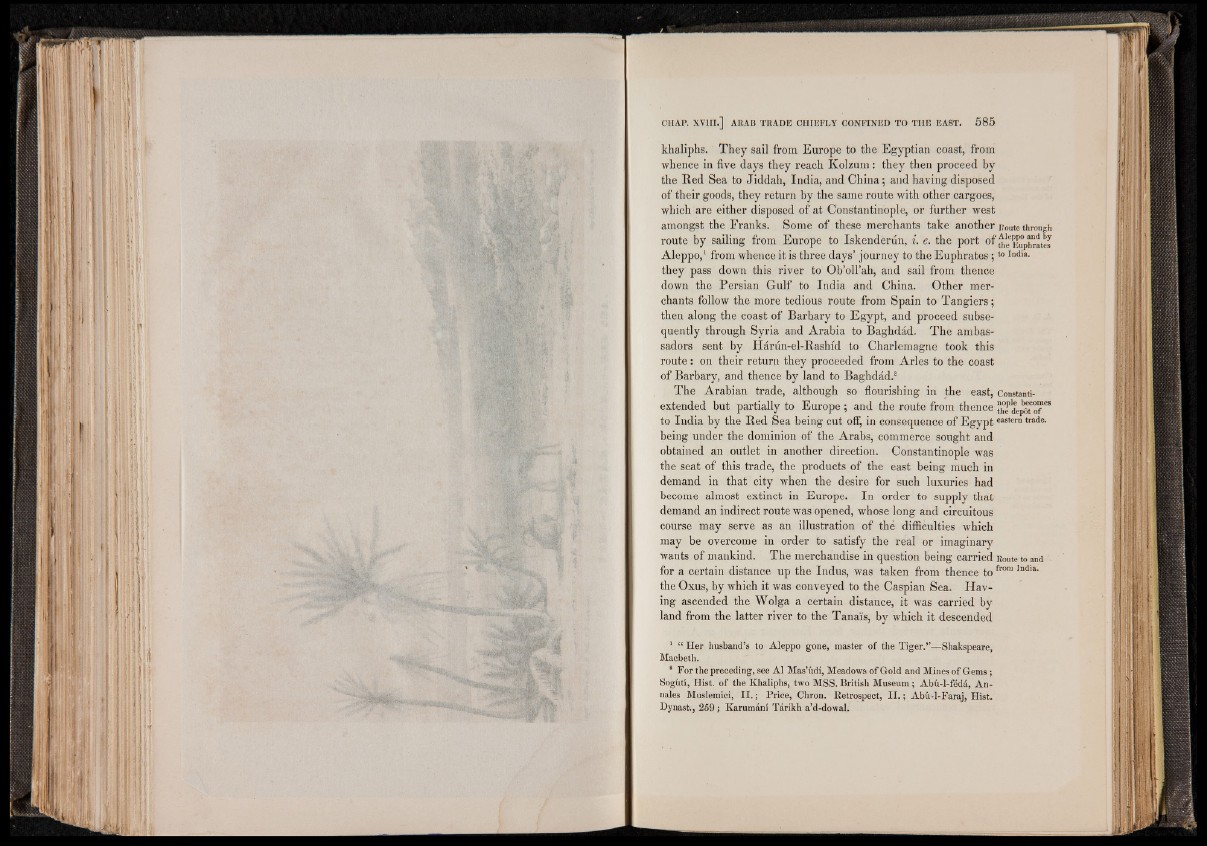
khaliphs. They sail from Europe to the Egyptian coast, from
whence in five days they reach Kolzum : they then proceed by
the Red Sea to Jiddah, India, and China ; and having disposed
of their goods, they return by the same route with other cargoes,
which are either disposed of at Constantinople, or further west
amongst the Franks. Some of these merchants take another Route through
route by sailing from Europe to Iskenderun, i. e. the port
Aleppo,1 from whence it is three days’ journey to the Euphrates ; 10 India-
they pass down this river to Ob’oll’ah, and sail from thence
down the Persian Gulf to India and China. Other merchants
follow the more tedious route from Spain to Tangiers ;
then along the coast of Barhary to Egypt, and proceed subsequently
through Syria and Arabia to Baghdad. The ambassadors
sent by Harun-el-Rashid to Charlemagne took this
route : on their return they proceeded from Arles to the coast
of Barbary, and thence by land to Baghdad.2
The Arabian trade, although so flourishing in the east, constanti-
extended but partially to Europe ; and the route from thence thé’depsHf'68
to India by the Red Sea being cut off, in consequence of Egypteastern trade-
being under the dominion of the Arabs, commerce sought and
obtained an outlet in another direction. Constantinople was
the seat of this trade, the products of the east being much in
demand in that city when the desire for such luxuries had
become almost extinct in Europe. In order to supply that
demand an indirect route was opened, whose long and circuitous
course may serve as an illustration of thè difficulties which
may be overcome in order to satisfy the real or imaginary
wants of mankind. The merchandise in question being carried Route to and
for a certain distance up the Indus, was taken from thence to fronl ,ndia'
the Oxus, by which it was conveyed to the Caspian Sea. Having
ascended the Wolga a certain distance, it was carried by
land from the latter river to the Tanai's, by which it descended
1 “ Her husband’s to Aleppo gone, master of the Tiger.”—Shakspeare,
Macbeth.
1 For the preceding, see Al Mas’ùdi, Meadows of Gold and Mines of Gems ;
Sogùti, Hist, of the Khaliphs, two MSS. British Museum ; Abu-1-féda, An-
nales Muslemici, I I . ; Price, Chron. Retrospect, I I . ; Abu-l-Faraj, Hist.
Dynast., 259 ; Karumani Tàrikh a’d-dowal.